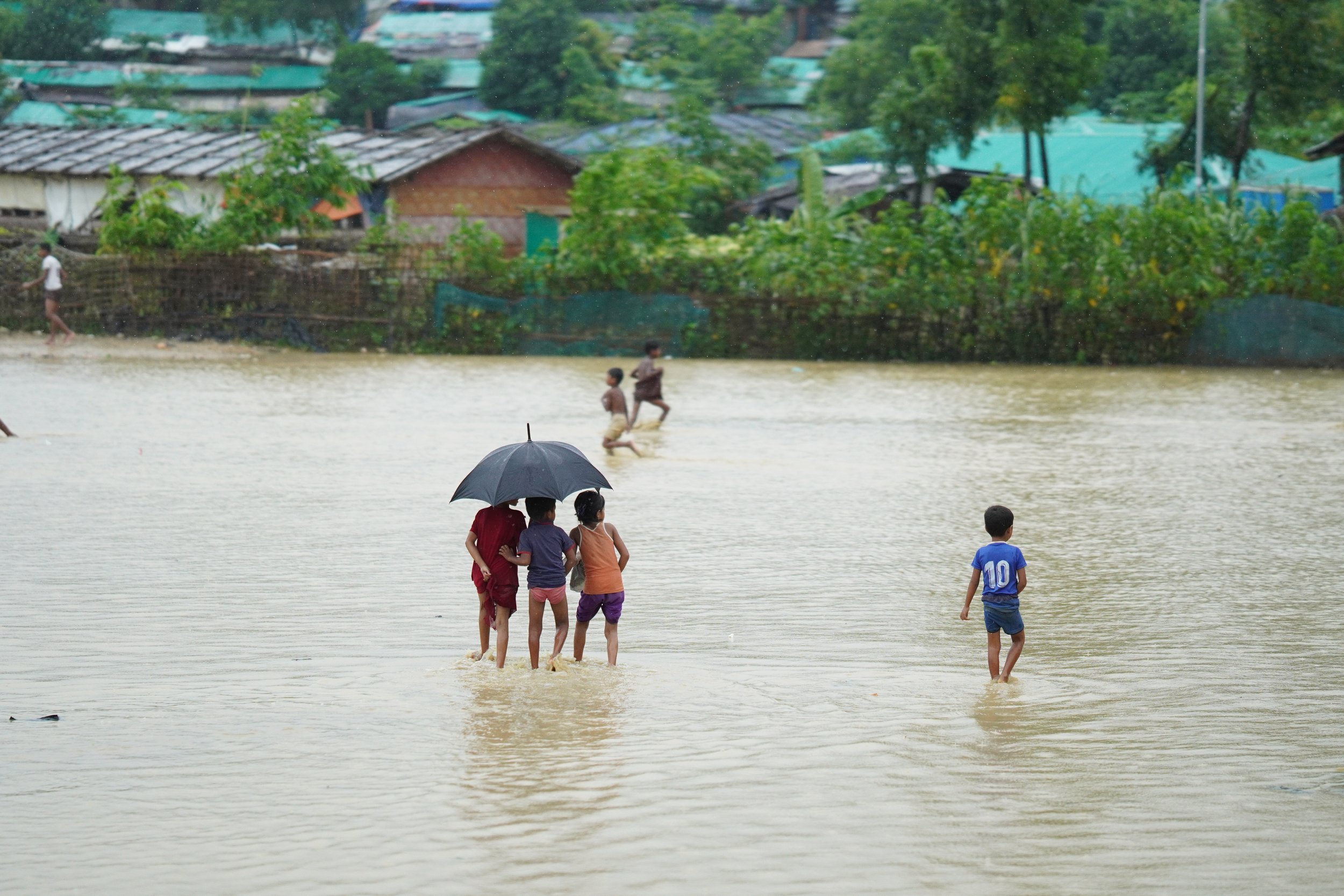Burma
Burma’s ethnic minorities have been subject to political repression, economic exclusion, and widespread violence since the Burmese military took control of the government in a coup in 1962. Among these groups, the Rohingya people have been particularly targeted by the state instigating and committing violence and violence. Through systematic persecution over decades, the Rohingya have been denied the basic rights of citizens, including freedom of movement and religion, access to education, healthcare, and livelihood opportunities, as well as the space to build a robust civil society. Political and economic persecution culminated in recurring waves of violence against Rohingya communities starting in the mid-1970s and continuing through the present day.
In August 2017, the military government perpetrated an organized wave of extreme violence targeting Rohingya in Rakhine State. This violence, which was formally recognized by the United States in 2022 as a genocide, resulted in the burning of almost half of all Rohingya villages in Rakhine state, destroying the evidence of generations of Rohingya who had lived there. 750,000 Rohingya were forcibly displaced across the border into Bangladesh, where most remain today. The refugees joined tens of thousands who had fled previous waves of violence. Rohingya refugees as well as those remaining in Burma face serious barriers to education, employment, and adequate mental, physical, and psychosocial care, in addition to restrictions on free movement and cultural expression and constant threats to their safety. Rohingya refugees in other South and Southeast Asian countries are also at risk of arrest, trafficking, and being forcibly deported back to Burma.
In February 2021 the Burmese military deposed the civilian government in a coup. The people of Burma have organized themselves and pushed back. It has now been three and a half years since the coup. The junta continues to commit mass atrocities against civilians. Ethnic armed groups have control over large swaths of the country. With these groups having the upper hand at the ground level, the military has shifted to using its advantage of aerial combat, indiscriminately bombing villages, schools, and hospitals across the country. In Rakhine State, there have been fierce clashes between the military and the Arakan Army. Both sides are currently committing war crimes and crimes against humanity, with civilians caught in the middle. The Rohingya that remain in Rakhine are facing serious threats with no means of protection and humanitarian assistance is non-existent. The situation is so dire that many are saying it is worse than the 2017 clearance operation.
The recent resignation of Bangladesh’s Prime Minister, Sheikh Hasina, leaves the country in the hands of an interim government. Many questions remain on whether Rohingya fleeing violence in Rakhine State will be able to enter Bangladesh, and if conditions for Rohingya refugees in the country will improve.
Burma’s military continues to deny any accountability for past atrocities and has repeatedly overthrown civilian governments to prevent progress on accountability and reform efforts. International efforts to achieve justice for the genocide, including cases at the International Criminal Court, the International Court of Justice, and cases currently being prosecuted in third countries, have not yet resulted in convictions for any individual perpetrators to date.
Our Work
PAEMA’s work on Burma extends to Bangladesh as well, with our partnerships with Rohingya refugee civil society groups. In 2017, PAEMA’s leadership, then operating as the Never Again Coalition, decided to take Burma on as an additional area of focus following the Burmese military’s clearance operations against the Rohingya population in Rakhine State which the US later determined was genocide. Seven years later, the situation for the Rohingya has not improved and virtually the whole of Burma is in a state of conflict following the military coup in 2021. Our current focus in Burma and Bangladesh is:
-
We assist in developing and supporting project proposals from and with Rohingya civil society. We facilitate advocacy training with Rohingya civil society and diaspora groups. PAEMA provides support to Rohingya human rights groups working on accountability and atrocity prevention efforts. We regularly organize and facilitate meetings with Rohingya civil society to increase their ability to access local, regional, and international fora.
-
PAEMA provides regular updates to international policymakers on developments in both Burma and Bangladesh to help inform their discussions and decisions. As often as possible, we include civil society representatives in meetings. Internet blackouts and travel restrictions have hindered some of these efforts but we work to provide messaging directly for civil society groups when they are unable to attend themselves. We develop and present atrocity prevention and conflict resolution strategies that target multilateral forums to promote peace and justice efforts. We also participate in a working group on Burma and Bangladesh.
-
PAEMA currently provides support for education and capacity building for Rohingya refugees in Bangladesh. This includes providing scholarships for university students, supporting community-based schools, and peacebuilding activities. We have plans to scale up this work as we build our capacity.




